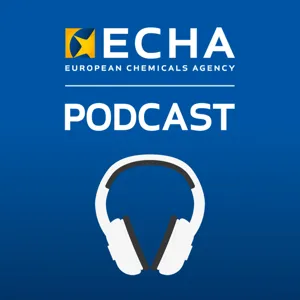Joining forces for humans, animals, environment: One Health - Part 2

Our wellbeing depends on the health of animals, plants and our environment. What affects one affects all the others, and increasingly so.
A One Health perspective is about joining forces to find integrated solutions to common challenges such as climate change and antibiotic resistance.
Join us to hear from experts at five EU scientific agencies about how we can put One Health into practice. Whether it's safeguarding access to life-saving medicines or combating the next pandemics, a One Health approach will be essential to how our society navigates the future.
This is the second of our two part episode with speakers from five EU agencies. Listen to the first episode here.
Host
James Ramsay, Head of Communications - European Food Safety Authority (EFSA)
Guests
Carlos das Neves, Chief Scientist - European Food Safety Authority (EFSA)
Wim De Coen, Head of Hazard Assessment at the European Chemicals Agency (ECHA)
Mike Catchpole, Chief Scientist at the European Centre for Disease Prevention and Control (ECDC)
Dario Piselli, Expert in environment and health at the European Environment Agency (EEA)
Steffen Thirstrup, Chief Medical Officer at the European Medicines Agency (EMA)
Check our website and stay updated by subscribing to our newsletter.
Useful links
**************
Follow us on:
Disclaimer: Views expressed by interviewees do not necessarily represent the official position of the European Chemicals Agency. All content is up to date at the time of publication.
